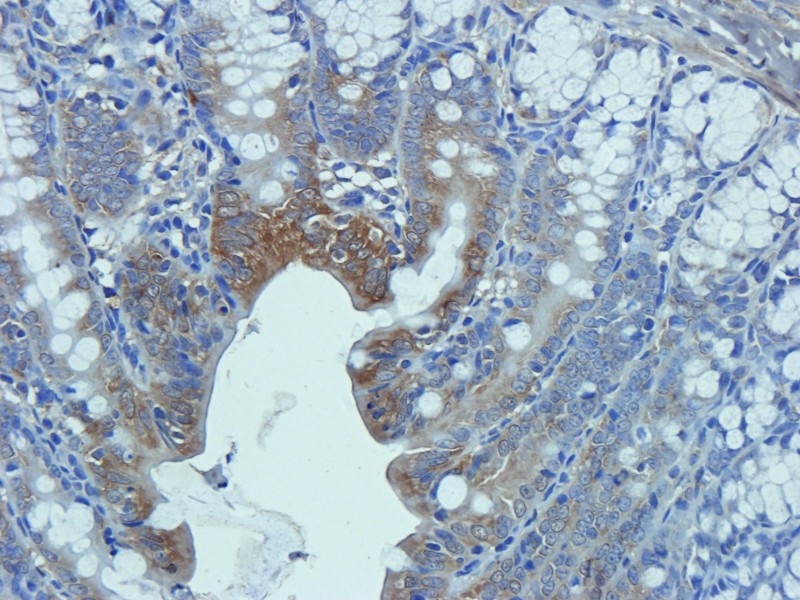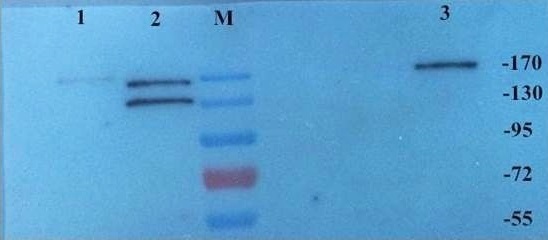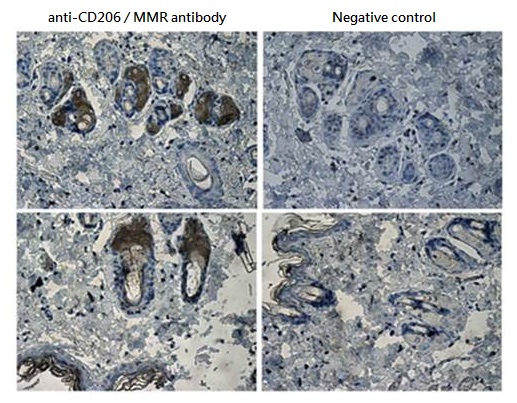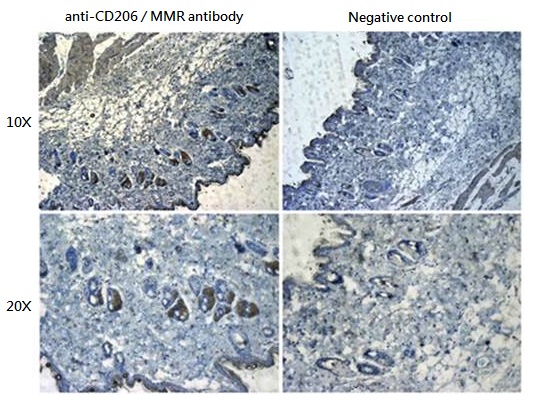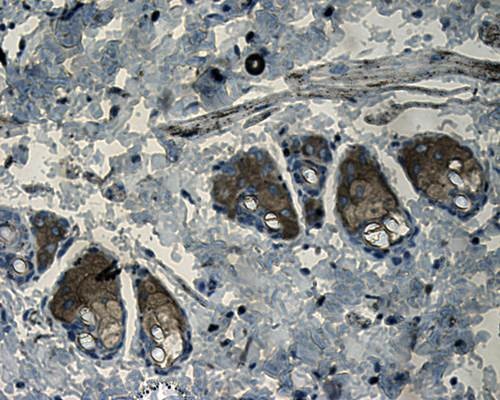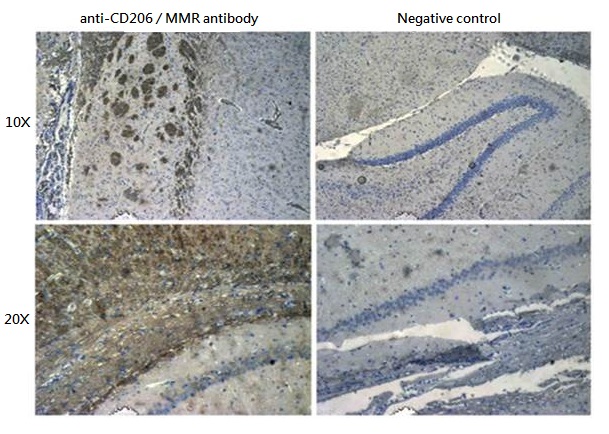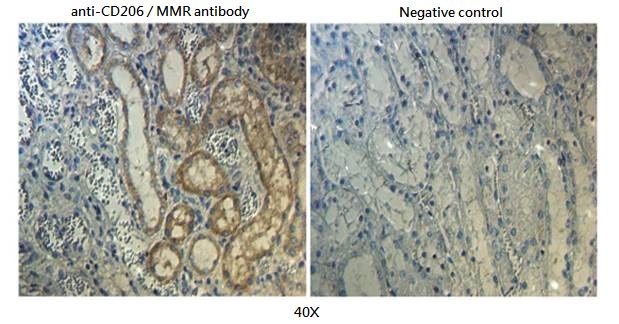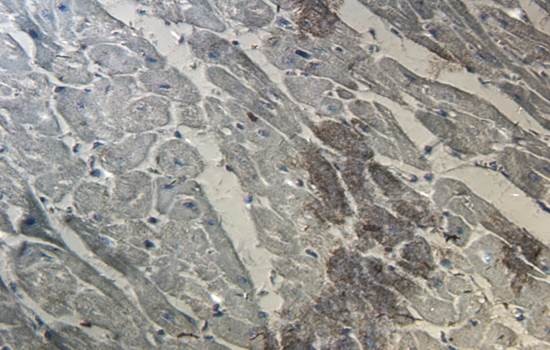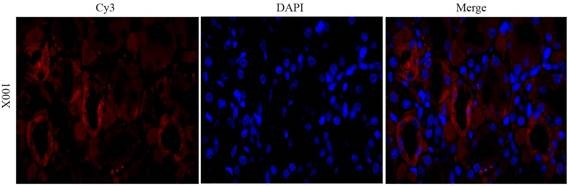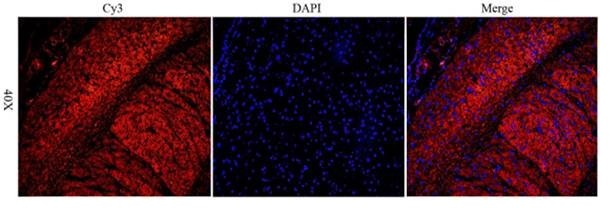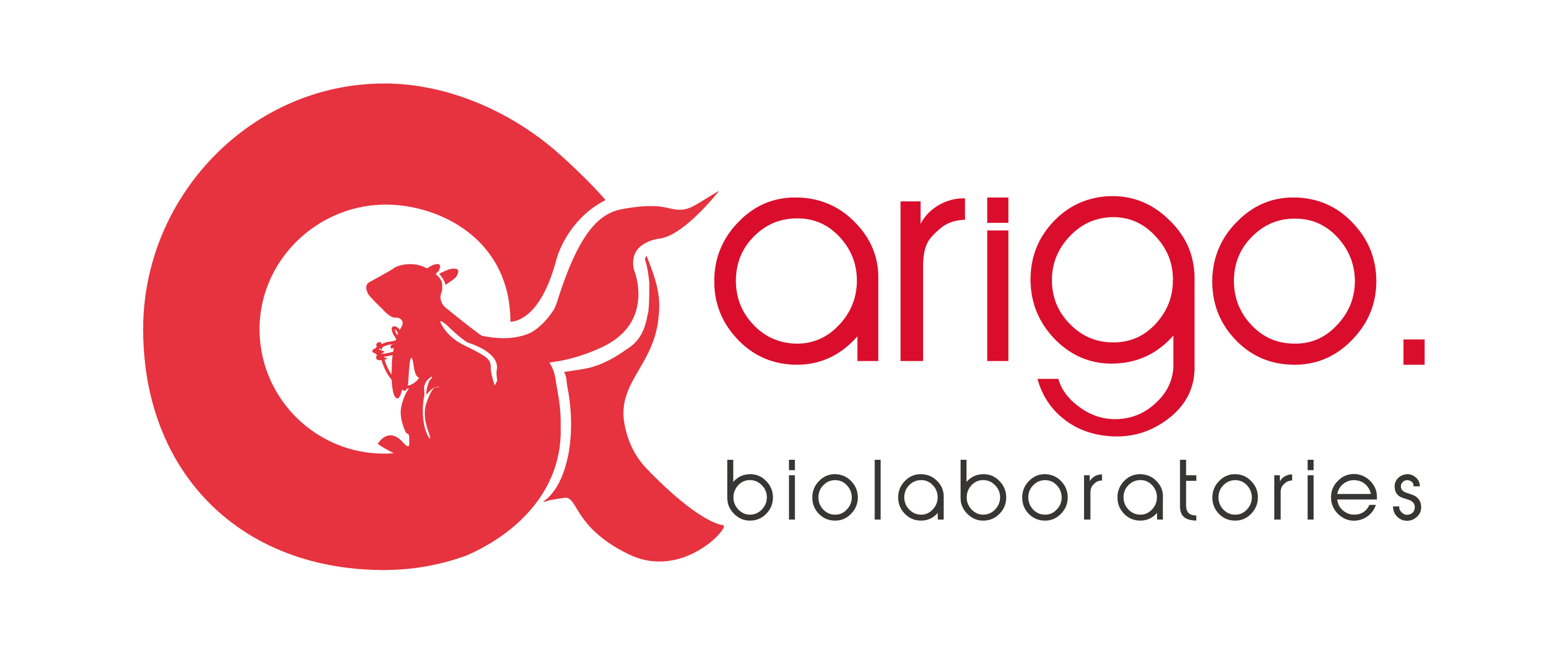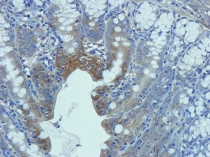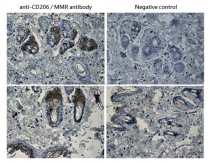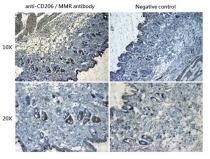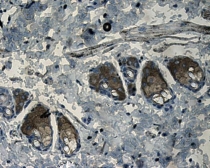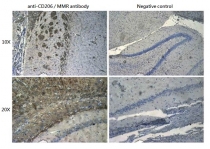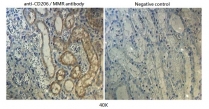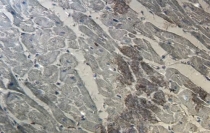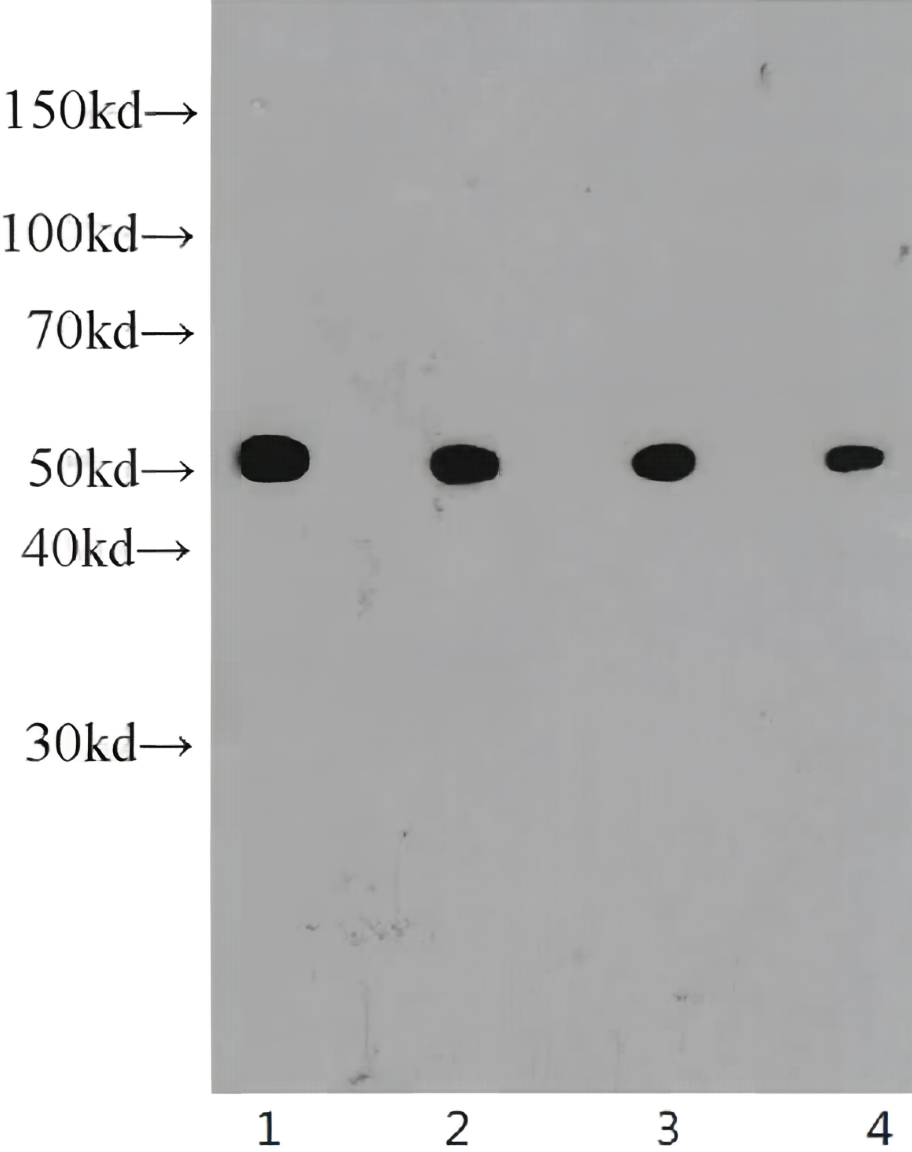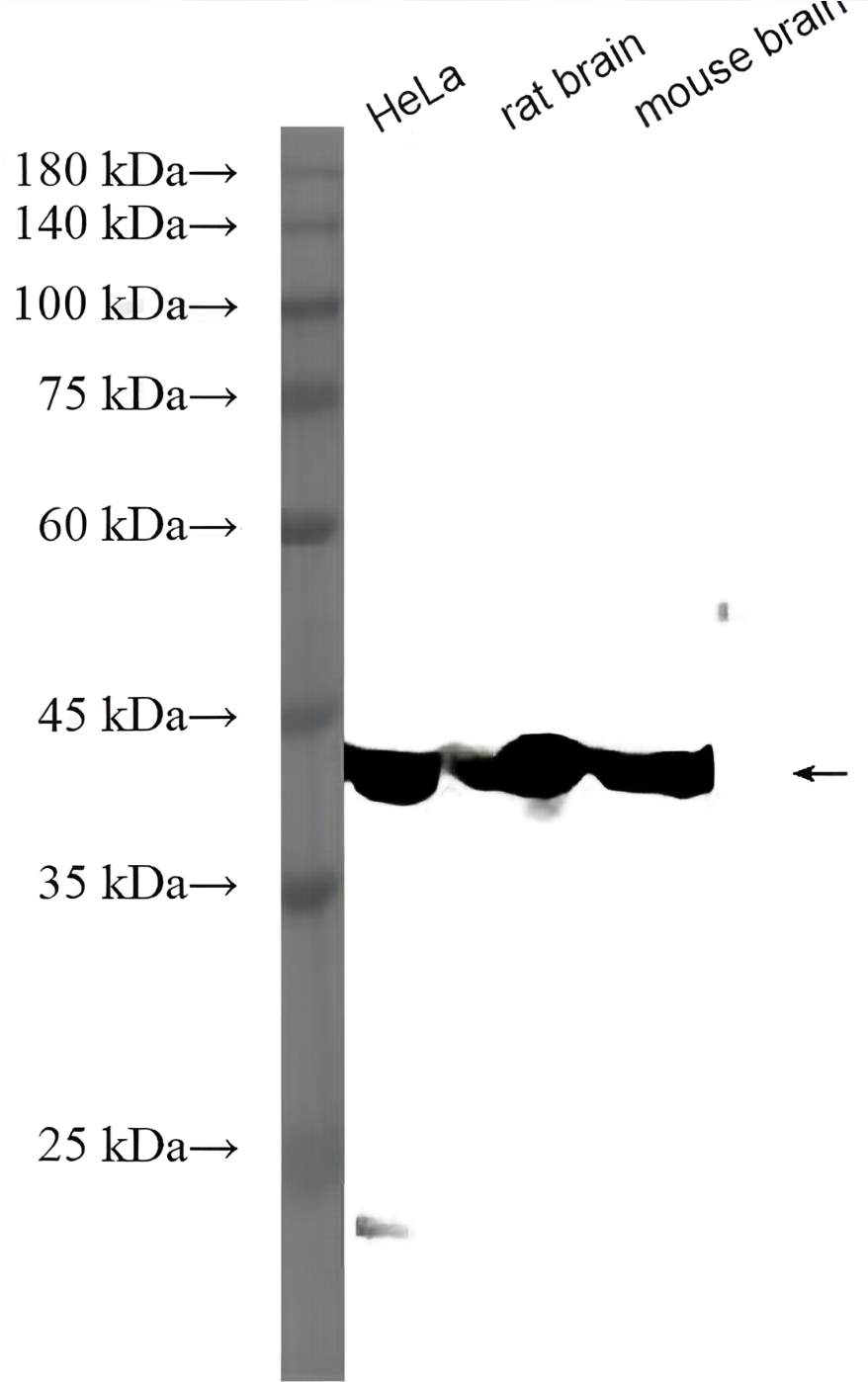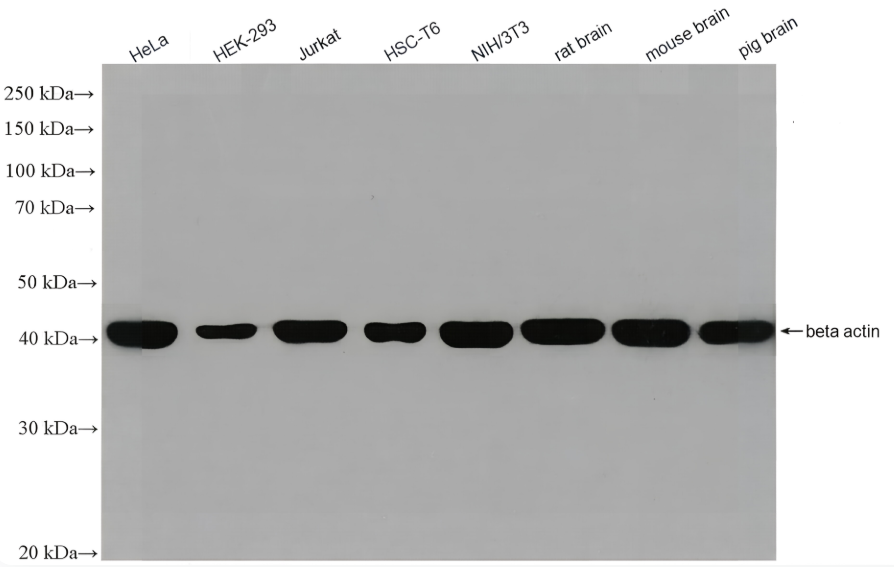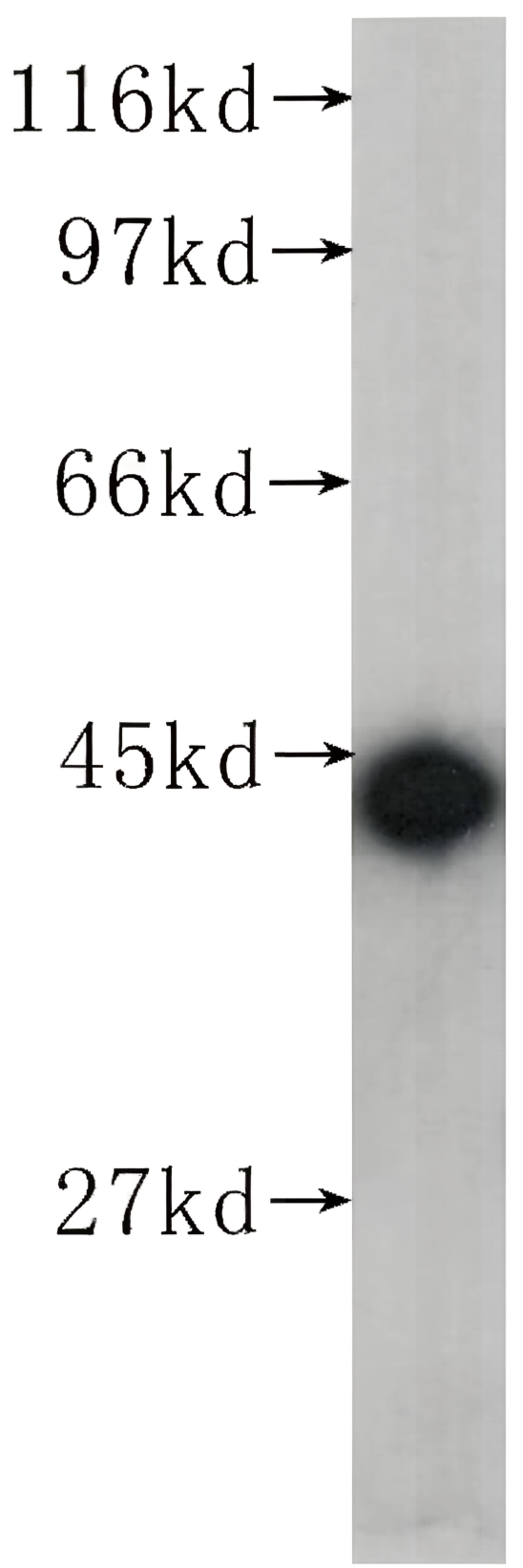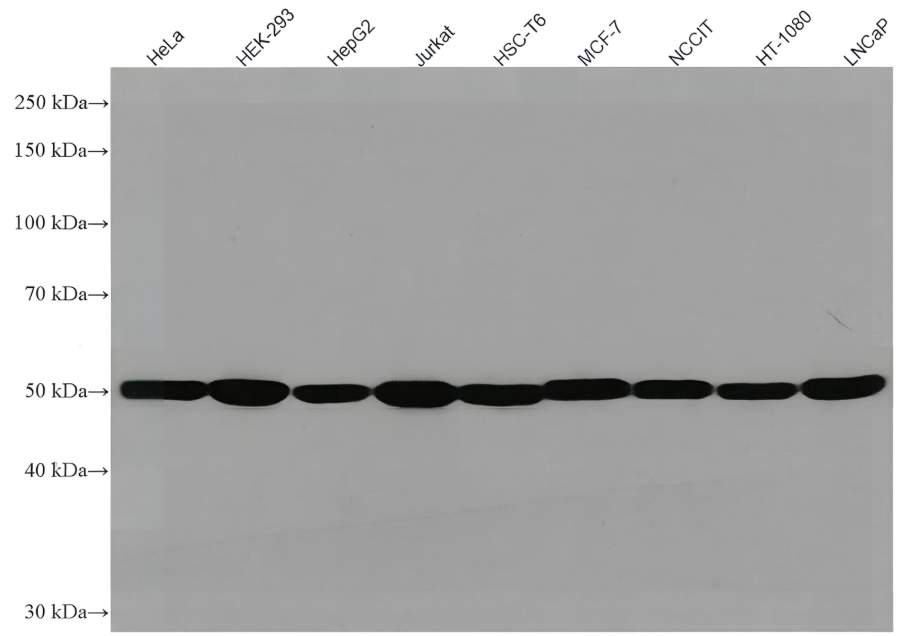anti-CD206 / MMR antibody
| 产品描述 | Rabbit Polyclonal antibody recognizes CD206 / MMR |
|---|---|
| 反应物种 | Hu, Ms, Rat, Pig |
| 应用 | ICC/IF, IHC-P, WB |
| 宿主 | Rabbit |
| 克隆 | Polyclonal |
| 同位型 | IgG |
| 靶点名称 | CD206 / MMR |
| 抗原物种 | Human |
| 抗原 | KLH-conjugated synthetic peptide from Human CD206 / MMR. |
| 偶联标记 | Un-conjugated |
| 別名 | CLEC13D; C-type lectin domain family 13 member D; Macrophage mannose receptor 1-like protein 1; C-type lectin domain family 13 member D-like; MMR; CLEC13DL; CD206; Macrophage mannose receptor 1; bA541I19.1; CD antigen CD206; MRC1L1 |
| 应用建议 |
| ||||||||
|---|---|---|---|---|---|---|---|---|---|
| 应用说明 | * The dilutions indicate recommended starting dilutions and the optimal dilutions or concentrations should be determined by the scientist. |
| 形式 | Liquid |
|---|---|
| 纯化 | Affinity purification with immunogen. |
| 缓冲液 | PBS and 0.02% Sodium azide. |
| 抗菌剂 | 0.02% Sodium azide |
| 浓度 | 0.5 mg/ml |
| 存放说明 | For continuous use, store undiluted antibody at 2-8°C for up to a week. For long-term storage, aliquot and store at -20°C or below. Storage in frost free freezers is not recommended. Avoid repeated freeze/thaw cycles. Suggest spin the vial prior to opening. The antibody solution should be gently mixed before use. |
| 注意事项 | For laboratory research only, not for drug, diagnostic or other use. |
| 数据库连接 | |
|---|---|
| 基因名称 | MRC1 |
| 全名 | mannose receptor, C type 1 |
| 背景介绍 | The recognition of complex carbohydrate structures on glycoproteins is an important part of several biological processes, including cell-cell recognition, serum glycoprotein turnover, and neutralization of pathogens. CD206 / MMR is a type I membrane receptor that mediates the endocytosis of glycoproteins by macrophages. The protein has been shown to bind high-mannose structures on the surface of potentially pathogenic viruses, bacteria, and fungi so that they can be neutralized by phagocytic engulfment. [provided by RefSeq, Sep 2015] |
| 生物功能 | CD206 / MMR mediates the endocytosis of glycoproteins by macrophages. Binds both sulfated and non-sulfated polysaccharide chains. (Microbial infection) Acts as phagocytic receptor for bacteria, fungi and other pathogens. (Microbial infection) Acts as a receptor for Dengue virus envelope protein E. (Microbial infection) Interacts with Hepatitis B virus envelope protein. [UniProt] |
| 产品亮点 | Related products: CD206 antibodies; CD206 ELISA Kits; CD206 Duos / Panels; Anti-Rabbit IgG secondary antibodies; Related news: Tumor-Infiltrating Lymphocytes (TILs) New antibody panels and duos for Tumor immune microenvironment Anti-SerpinB9 therapy, a new strategy for cancer therapy RIP1 activation and pathogenesis of NASH |
| 研究领域 | Immune System antibody; M1/M2/TAM Marker antibody; Macrophage Marker antibody; M2 Macrophage Marker antibody |
| 预测分子量 | 166 kDa |
ARG22372 anti-CD206 / MMR antibody IHC-P image
Immunohistochemistry: Paraffin-embedded Rat colon tissue stained with ARG22372 anti-CD206 / MMR antibody at 5 µg/ml dilution.
ARG22372 anti-CD206 / MMR antibody WB image
Western blot: 1) Rat brain, 2) Rat kidney, and 3) Mouse brain tissue stained with ARG22372 anti-CD206 / MMR antibody at 1:500 dilution.
ARG22372 anti-CD206 / MMR antibody IHC-P image
Immunohistochemistry: Paraffin-embedded Rat skin tissue stained with ARG22372 anti-CD206 / MMR antibody at 1:200 dilution.
ARG22372 anti-CD206 / MMR antibody IHC-P image
Immunohistochemistry: Paraffin-embedded Rat skin tissue stained with ARG22372 anti-CD206 / MMR antibody at 1:100 dilution.
ARG22372 anti-CD206 / MMR antibody IHC-P image
Immunohistochemistry: Paraffin-embedded Rat kidney tissue stained with ARG22372 anti-CD206 / MMR antibody at 1:100 dilution.
ARG22372 anti-CD206 / MMR antibody IHC-P image
Immunohistochemistry: Paraffin-embedded Rat brain tissue stained with ARG22372 anti-CD206 / MMR antibody at 1:200 dilution.
ARG22372 anti-CD206 / MMR antibody IHC-P image
Immunohistochemistry: Formalin-fixed and paraffin-embedded Pig kidney tissue stained with ARG22372 anti-CD206 / MMR antibody at 1:200 dilution.
ARG22372 anti-CD206 / MMR antibody IHC-P image
Immunohistochemistry: Paraffin-embedded Pig heart tissue stained with ARG22372 anti-CD206 / MMR antibody at 1:200 dilution.
ARG22372 anti-CD206 / MMR antibody IHC-P image
Immunohistochemistry: Paraffin-embedded Rat kidney tissue stained with ARG22372 anti-CD206 / MMR antibody at 1:200 dilution.
ARG22372 anti-CD206 / MMR antibody IHC-P image
Immunohistochemistry: Paraffin-embedded Rat brain tissue stained with ARG22372 anti-CD206 / MMR antibody at 1:100 dilution.
 New Products
New Products





